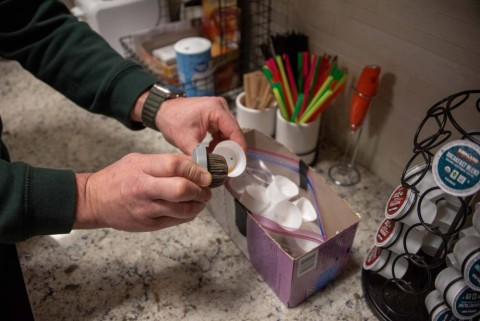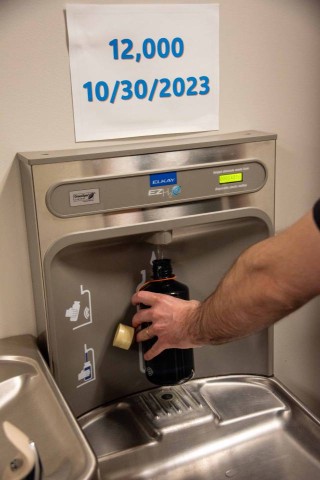Biz Spotlights
Green Business Spotlight: Signal Hound
Signal Hound, our newest Green Business, is excited to continue to grow and develop as a Clark County Green Business in Battle Ground. Our AmeriCorps member, Mackenzie Hagedorn, had the opportunity to sit down with Sean Phillips, the company's creative producer and green team lead at Signal Hound, to talk about their green goals and accomplishments, and their plan to win a 2025 Green Business Award. Read on to learn more or visit their Green Business listing here.
Can you describe the overall sustainability messaging of Signal Hound?
Sean:"Signal Hound's mission is to deliver unrivaled value and clarity through better made products. That value and clarity is not only an aspect of our business model when we deal with our customer base but is also something we practice internally in many ways. As a company we value our commitment to practicing green techniques and we do our best to provide clarity to all employees that being good stewards to the earth is something we should all take pride in."
What strides have you made in the past year to achieving your sustainability goals?
Sean: "This is our first year being recognized as a Green Business of Clark County. Our focus for 2023 was to identify and recognize what Signal Hound's current green practices are, followed by identifying and recommending practices to implement and move forward with. After conducting our initial audit, we were pleasantly surprised to find that we are already instituting a lot of green techniques, such as utilizing overhead LED lights and reusable dishware, providing a water refill station, repurposing packaging internally and encouraging reuse externally, having motion activated faucets and lights in our building, and providing battery, toner, and paper recycling programs for our employees. This encouraged us to apply for the Green Business certification and put together a three-phase plan to sustain and improve our green techniques.
We're in the thick of phase one right now and we are starting to have a discussion about eliminating plastic water bottles in our vending machines by working on a cost-benefit analysis that takes into account purchasing reusable water bottles for all employees. We're working to decrease our use of single-use cups, plates and cutlery. We've also posted signage for proper waste and recycling disposal and our waste reduction achievements around the building. With our coffee machines, we've found a way to make our usage of K-cups a bit more sustainable. We've provided K-cup cutters for employees to be able to recycle the parts of the K-cups that we can and continue to help minimize our waste generation.
With phase two of our plan, we want to improve our company recycling and composting systems. We want to have composting available for our employees on-site and want to provide incentives for employees to engage in sustainable practices. We also want to do a more in-depth waste audit with Clark County Green Business and Waste Connections and want to find more sustainable alternatives to our paper products, like paper towels and toilet paper.
Phase three down the road includes exploring the idea of an electric car charger installed on-site, hiring external companies to find more ways to recycle our waste, researching how to continue to minimize our hazardous waste generation."
What measures do you take to minimize waste generation within your business? Do you encourage composting for your employees and customers? If so, how?
Sean: "At Signal Hound we minimize our waste wherever possible. Examples of our waste reduction techniques are utilizing long lasting LED lights in our overhead lights, providing reusable dishware and a dishwasher in the breakroom for employees, having a water bottle fill/refill station, that is about to hit 14,000 bottles saved, and re-purposing packing materials. We also have a battery recycling bin, we recycle toner cartridges from printers, a paper recycling and shredding program, and cardboard recycling in place. Signal Hound does not currently compost on-site, but it is outlined in phase two of our three phase plan, and we do encourage employees to compost at home, which I can confirm that several employees do."
How do you engage employees in sustainable initiatives? What steps have you taken to promote a culture of sustainability among your staff?
Sean:"At Signal Hound we engage with our employees about practicing green techniques with our commitment to being good stewards to the earth. This green initiative is employee-lead and organized. We got together to recognize what we were currently doing well, reached out to employees in multiple departments to find out what they thought we could improve on, and then plan to incrementally institute those recommended changes. We recognize green milestones and acknowledge them internally to our team, with signage and announcements. For example, when we reached 12,000 water bottles saved, we sent out an email alert and put up a sign recognizing the day of that achievement. We also have signage posted for recycling, paper shredding, water refill station and more. Bi-annually, I present to the company on our sustainable achievements, goals moving forward, and areas we can take immediate action in. But we do recognize that we are a business and sustainable initiatives can be costly and disruptive. With that, we strive to accomplish incremental but significant changes to minimize disruptions to productivity while achieving our sustainability goals."
Please tell us any other ways your company supports our community.
Sean:"We have participated in events like the Hough Foundation Couch-To-5k, which helps to raise money for a local elementary school. In 2023 as a team, we participated in the Komen Oregon & SW Washington More Than Pink Walk, which benefits cancer research. Employees also participate in the Lewis River Rotary, Battle Ground Rotary clubs, and La Center Music Association. In the future we hope to participate in the Adopt-a-Highway program and additional employee-driven volunteering opportunities."
What are your company's future sustainability goals for 2024 and beyond? How do you plan to hold your company accountable for achieving them?
Sean:"We are currently in phase one of our three phase plan. We hope to complete all goals for phase one this year and by the end of the year transition to phase two. We will keep ourselves accountable for these goals by staying on task. Incrementally making changes that we need to make pushes us to our ultimate goals, and getting through our phases and keeping up with our green techniques is going to be employee-led and something employees will be able to take pride in. As a team we will keep each other accountable."
Is there anything else you would like to talk about that you feel we haven't covered here?
Sean:"We are really excited about being recognized as a Green Business and we look forward to improving on what we do and applying to the 2025 Clark County Green Business Awards. Our CEO, Harrison Osbourn, has this to say about our recent certification, 'We are thrilled to be recognized as a certified Green Business in Clark County. Building a strong, but sustainable business is important to our strategy as well as our responsibility as a local business.'"




